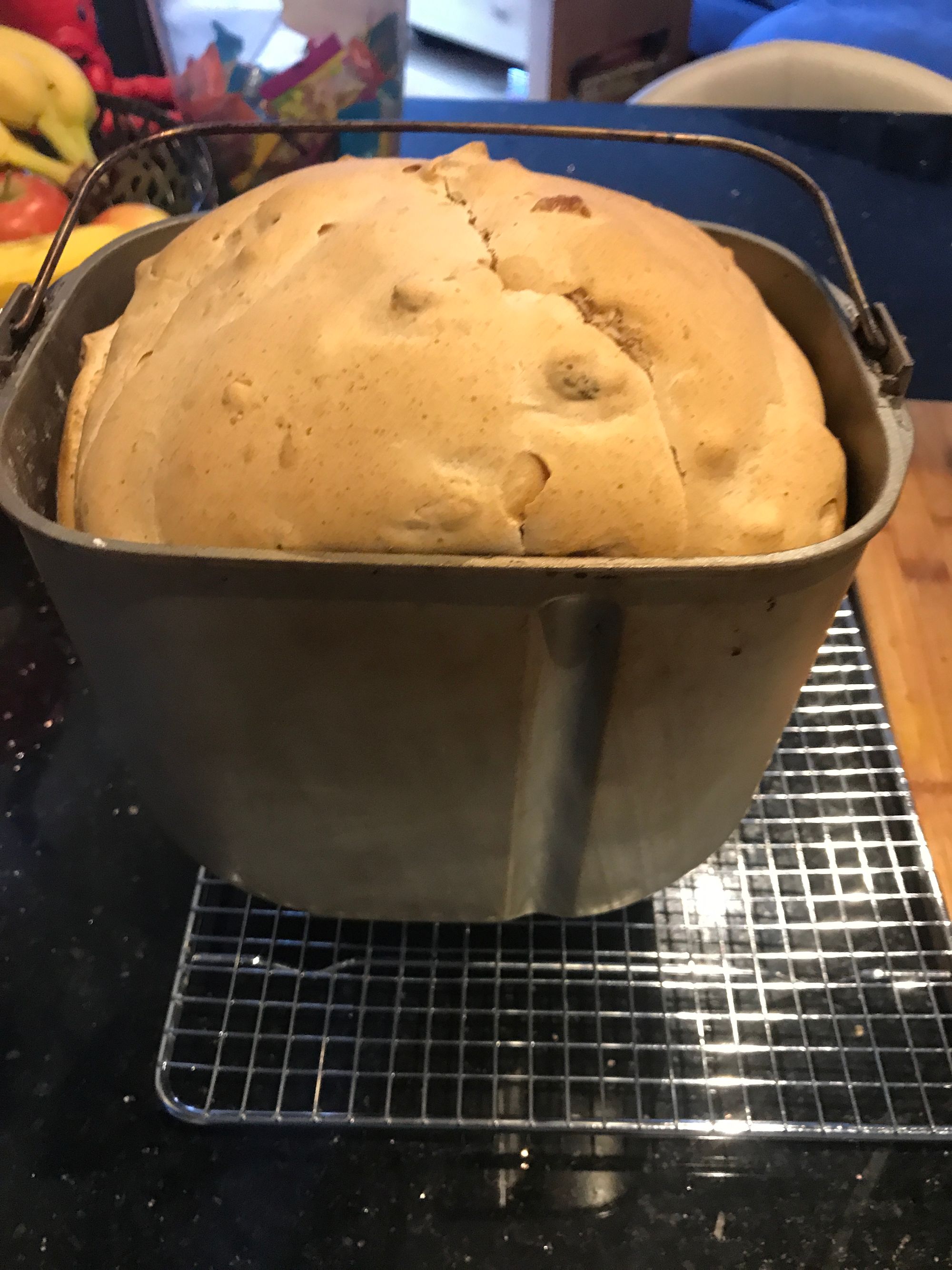A day in the life of PKU

I have been with my PKU clinic since emigrating to the UK over a decade ago and have a good relationship with them. I know from speaking to others that I’m fortunate in that. I didn’t know my dieticians followed this blog though - Hullo team! Recent emails from the clinic started a rumination on perspectives of PKU, particularly the view from the other side of the consulting desk.
I know that PKU is one of many Inherited Metabolic Disorders (IMD) and IMD’s are only a small corner of the vast range of diet therapies which dieticians interact with. A dietician’s focus on PKU may be a purely objective one focused on brain damage, amino acid and nutrition inputs. They only see us once every few months so how do you show them the daily perspective? How do you explain living with PKU to someone who approaches it from a medical or academic perspective?
Diet trials!
Oh yes! How often has someone with PKU wanted to say: “If my diet is so simple then you try it!” In the past few years, several people have stepped up to the challenge and done just that. In 2018, the NSPKU set out a ‘Diet for a Day’ challenge and managed to convince several MPs to try it out. Liz Twist MP was already campaigning for PKU in parliament and the experience brought home to her the challenges which people with PKU face every day. You can see the video on her twitter feed.
Before that, in 2015, I was glued to the blogs when registered dieticians Louse and Sarah undertook their ‘7 day 7 Exchange Dietitian Challenge’. Qualified dieticians with years of experience in the NHS between them having to deal with the intricacies of a daily PKU diet?

Yes please! There was a bit of schadenfreude - sorry guys! But I am grateful for their explanation of the difficulties encountered and for the tips uncovered.
PKU from the inside
Those are both perspectives of PKU from the outside, but how do you explain the challenge of PKU as someone living with it? This was an interesting question and I also realised that I am only one perspective on PKU. I needed to get a wider point of view to do this properly. The PKU Twitter community is a great resource and in this instance their posts showed that planning is key when it comes to the PKU diet. So my challenge became:
How do you explain to a medical professional the effort which goes into planning every meal?
This is a blog post, not a novel, so I decided to set out how much effort goes into breakfast.
The most important meal of the day
I still remember the day, nearly a quarter of a century ago, when the new PKU list told me I couldn't have cornflakes anymore. New analysis showed that a 30g portion of cornflakes is 2.5 Phe exchange. A small bowl, even with PKU friendly milk, would cost half of my 5 exchanges a day. I simply couldn't do that anymore. The news was devastating.
That may sound like hyperbole but think about how often cornflakes are used as a metaphor for normality. TV shows, movies, and even adverts portray pouring a bowl of cornflakes as the ultimate symbol of an ordinary start to the day. Families round the table eating together before heading off on their separate ways. The stressed cop, trying to get just one moment to himself before the phone rings with the latest horrible murder. Even Uma Thurman in Kill Bill is seduced by the soothing normality of a cereal box and nearly killed by the hidden gun.1
A PKU breakfast which works…
But to return to my point, one day a letter turned up telling me that I could no longer partake in that small daily ritual of normality. As a teenager who just wanted to fit in, that was pretty hard to take. This was before bread makers could cope with gluten free flour. My mum and I would diligently spend every Sunday baking for the week ahead. We did our best but, let's just say it wasn't until my first gluten free bread maker that I discovered toast shouldn't be chewy.
In rural NZ in the 90’s, we didn't know that PKU specific cereals existed. That was probably just as well as there was little chance of convincing the government to ship them halfway around the world for the 120 of us Kiwis with PKU. 2 For a few years my answer was sweet corn fritters. While my brother & sister groggily dragged themselves out of bed, I was at the stove whipping up a double batch of sweet corn fritters, hot ones for breakfast, cold ones for lunch. We were having a particularly difficult time with bread making and sandwiches were not a lunch box option.
In my early 20’s, I home-stayed with a family in the US while doing work experience and it was there that I found the answer to my breakfast problems - a berry smoothie! Yes they are everywhere now, but back then... Well, now I feel old :-). The recipe has changed a little over the years but I still take some time in the evening to prepare a cup of frozen berries, 10g (1Phe) rolled oats and PKU friendly milk or apple juice. This defrosts overnight and I blitz in a banana in the morning.
Except when it doesn’t
Some nights I forget to sort out breakfast. I’m too tired, too busy, too hungover - real life gets in the way. On those occasions, the mornings are a bit more difficult. Sure I could just defrost the berries in the microwave, but have you ever tried to drink a warm smoothie? Let’s just say, it’s not great.
At this point a dietician might be thinking, “you have oats, just make porridge!” I’m only allowed 5g of Phe for the whole day and you are supposed to have your Phe with your amino acid supplement. In turn, you are supposed to take your amino acid supplement at even intervals through-out that day. I have four supplements which leaves 1g of Phe for each supplement, and one spare for treats or mistakes. All of that means I have 1Phe available for breakfast. That means I can have 10g of oats. Even with sliced banana and raisins on top that is not enough for breakfast. And no, I’m not allowed cream.
So, if I forget to do the smoothie prep eight hours in advance then it's usually toast for breakfast. Assuming I've remembered to make it. I’ve had a bread maker since university, and think I am still the only student in my halls who had a formal dispensation for a bread maker in their dorm room.
Fast forward to now and my current model is a 10yr old Panasonic with a gluten free cycle. Another lifetime highlight, eating my first slice of bread baked on a gluten free cycle.

Sheer awesomeness. The fast gluten free cycle takes 3 hours to prep, bake and cool before you can eat. A long time to wait for breakfast if you have run out. The early morning shuffle in pjs to the local store to grab a new loaf or pint of milk is not an option for someone on the stricter PKU diets.
Back to cereal
What about PKU cereal! As someone who grew up without it, I still find pouring a bowl of completely Phe-free breakfast cereal is a novelty. There are several PKU cereal options available on prescription now. And the fact that there are now protein-free plant milks to go with them is just amazing.
Only, the flakes & loops that I’ve tried are hard straight out of box. I mean hazardous to your fillings hard. I've found they all need to soak for about 30 minutes in order to soften up a bit. If you skip this step or can't wait that long, some bits have been tough enough to cut the inside of my cheeks. Still not an instant breakfast.
There is one brand of coconut yoghurt in the UK which works out at 160g for 1Phe. Yay, cereal and yoghurt for breakfast! Except when that yoghurt isn’t available. There are so many coconut yoghurts now that supermarkets don’t feel the need to carry all the lines. Early in the UK lockdown, I couldn’t get my hands on that particular yoghurt for love nor money.
So even now, the blissful normality of just sitting down and having breakfast is still not an option for most people with PKU. But we cope, we get there. We record our exchanges and gulp down our amino acid supplements in any way we possibly can. Then we don't have to think about food again till lunch time.
PKU breakfast ideas from Louise and Sarah
As if by magic, Louise posted some new ideas for a PKU breakfast while I was writing this post - check it out. https://www.dietitianslife.com/special-diets/pku/low-protein-breakfast-ideas/
- Does anyone else wish a dietician would weigh in on the nutritional effects of concealing weapons in the larder? ↩︎
- I like to ensure all facts used on PigPen.page are backed up with proven studies and linked sites for people to explore. But in this case, the figure of 120 people in NZ with PKU comes from a PKU camp in North Canterbury in 1999. I did not keep the paperwork, my apologies. ↩︎

Member discussion